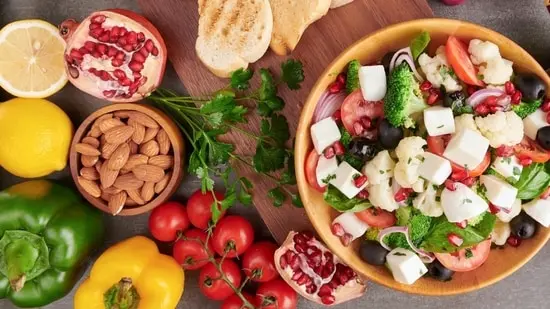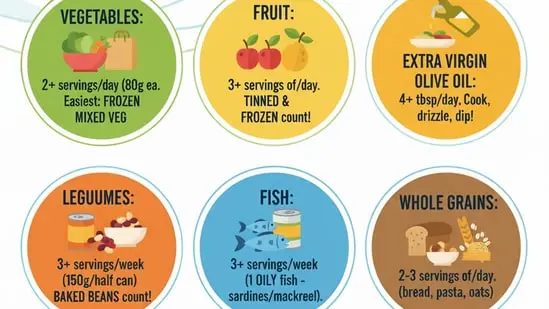
The Mediterranean diet, technically, isn't a diet, even though it's great for weight loss and can lower your risk of cardiovascular disease and many other chronic conditions, as per the Cleveland Clinic. It focuses on nutrient-dense, filling foods like vegetables, fruits, whole grains, legumes, and healthy fats, while limiting processed items and saturated fat.
What is Mediterranean diet?
Dr Karan Rajan, an NHS surgeon, took to Instagram on November 2 to explain that rather than giving up entire food groups, like carbs, the focus is on eating healthy foods in moderation, which makes the Mediterranean diet easy to stick to.
And if you thought the Mediterranean diet, which borrows from all the cuisines of the area — think Greek, Italian, and northern African — is a high-cost option, Dr Rajan shared a guide for adopting this diet in a manner that is both ‘realistic’ and economical.
According to Dr Rajan: “The Mediterranean diet isn't about specific foods, but eating patterns and food groups as a whole. So, choose what's practical and sustainable for you... If you want to eat a Mediterranean diet, but realistic and budget-friendly, here's what you can do.”
Practical tips to follow Mediterranean diet
Dr Rajan outlined specific daily and weekly intake targets for various food groups, focusing on budget-friendly options like frozen vegetables. From consuming at least two servings of vegetables and three servings of fruit daily to multiple weekly servings of legumes, fish (including oily varieties), and nuts, here's everything you can do to follow a 'realistic Mediterranean diet':
1. At least two servings a day of vegetables, and one serving is around 80 grams, the easiest and cheapest way to do this is frozen mixed veg.
2. At least three servings of fruit a day, tinned and frozen fruit count.
3. At least four tablespoons of extra virgin olive oil per day, and you can use it to cook vegetables, drizzle on salads, and even bread and pasta.
4. At least three servings a week of legumes, and a serving being roughly 150 grams or half a can. And baked beans count.
5. At least three servings a week of fish and at least one of those servings being oily fish. Things like tin sardines and mackerel in olive oil are cheap and omega-3 rich.
6. Two to three servings a day of whole grains. This is like one slice of whole meal bread, half a cup of cooked whole wheat pasta, and even half a cup of oats.
7. At least three servings a week of nuts, with each serving being around 30 grams.

In his caption, he wrote: “Realistic Mediterranean diet! You don’t need to source stuff from Sicilian farmers or Athenian food markets…tinned and frozen food count! The Mediterranean diet is not about specific food but food groups and eating patterns over time!”
Note to readers: This report is based on user-generated content from social media. HT.com has not independently verified the claims and does not endorse them.
This article is for informational purposes only and not a substitute for professional medical advice.
